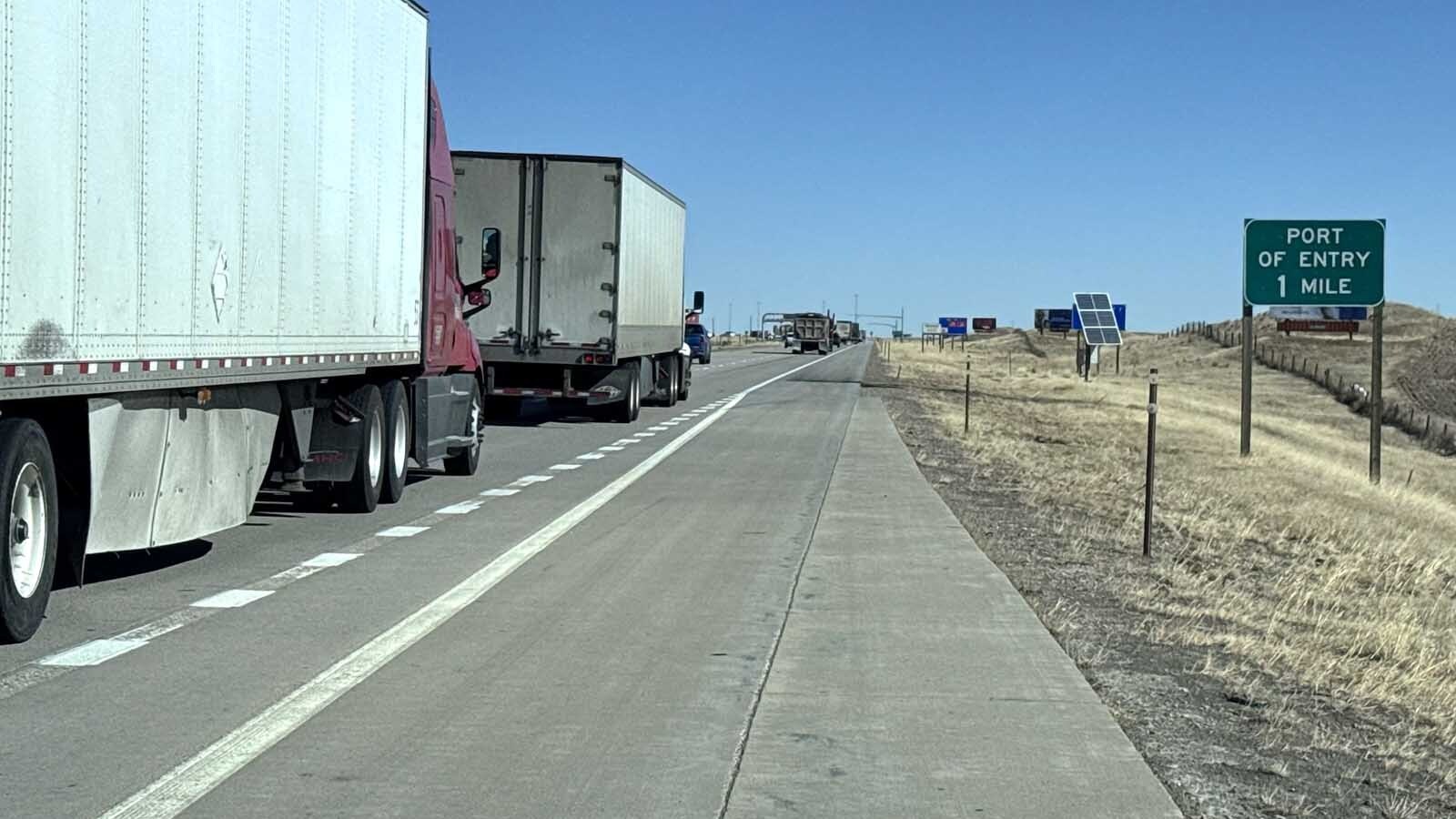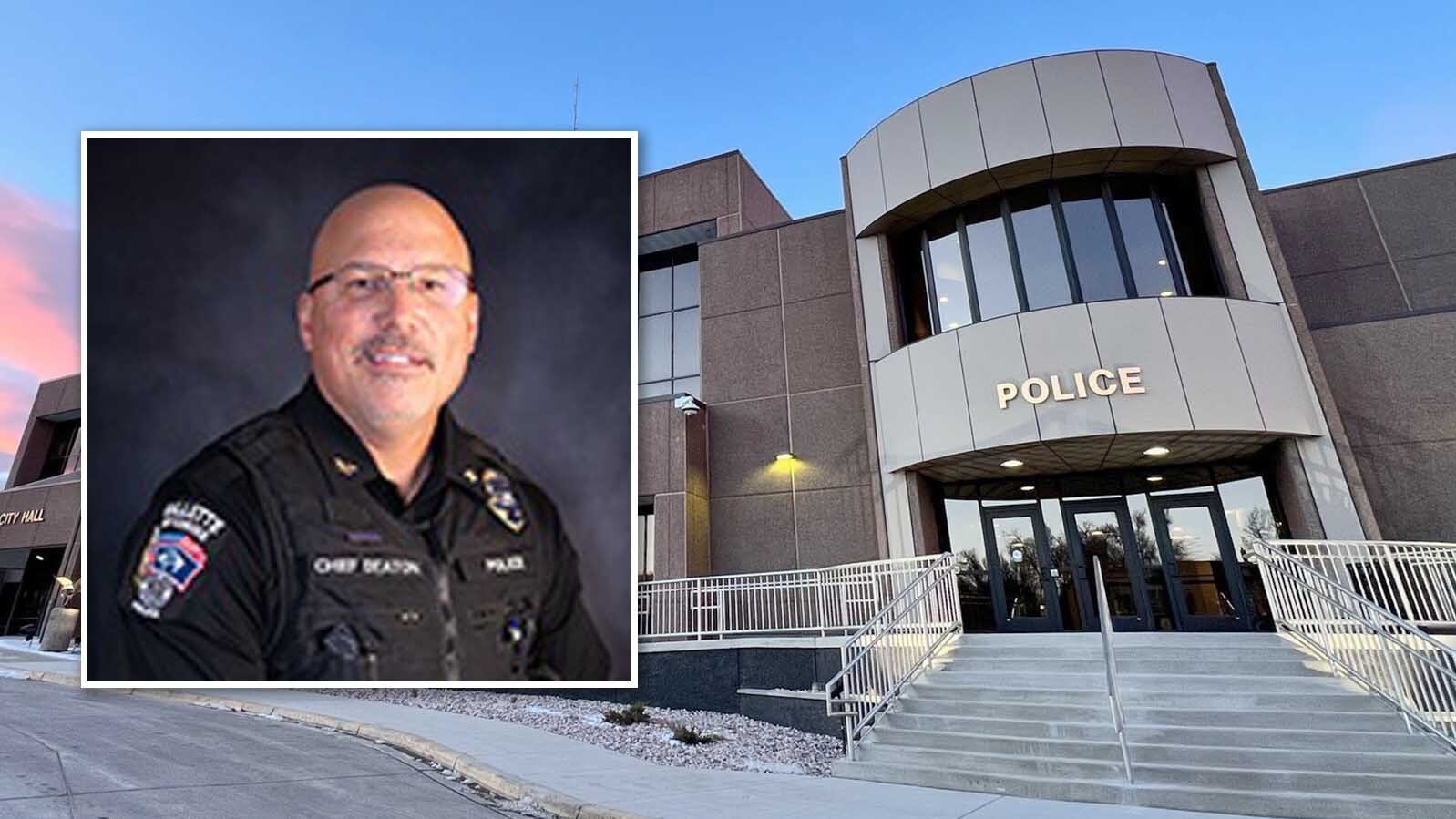The world’s largest animal-rights organization is suing the public airport that serves Rock Springs, Wyoming, saying the airport discriminated against it by not allowing an advertisement equating leather carry-on bags with animal cruelty.
People for the Ethical Treatment of Animals (PETA) on Tuesday sued the Southwest Wyoming Regional Airport and its director, Devon Brubaker, in his official capacity in the federal U.S. District Court for Wyoming.
The lawsuit revolves around PETA’s 2022 attempt to buy and display an ad in the airport’s terminal showing a live cow half-converted into a leather luggage bag.
“Was She Killed to Make Your Carry-On?” reads the proposed ad, with a smaller caption that says, “Cruelty doesn’t fly — Choose vegan.”
Brubaker on the airport’s behalf rejected the ad, saying it’s “just not something (the airport) needs to have in (its) terminal,” and that it was “less than appropriate for (the) family environment,” according to PETA’s lawsuit complaint.
The document elaborates: “PETA believes that like humans, cows are intelligent, sensitive and social individuals with distinct personalities who crave companionship and play.”
If the airport’s terminal is a forum meant for the exchange of speech, then it is unconstitutional for the airport to reject someone’s protected speech on the basis of the speaker’s viewpoint, the group contends.
PETA alleges that the airport did just that, and then enacted a policy that is both discriminatory and unconstitutionally vague.
The group is asking the federal court to make the airport run PETA’s ad “on the same terms offered to other advertisers” at the airport.
PETA is also asking for an award of “nominal,” or small monetary damages, reimbursement of its attorney’s fees and court costs, and for the court to declare that the airport violated PETA’s rights and drafted a discriminatory and unconstitutionally vague advertising policy.
The airport had not yet been served with the lawsuit Wednesday, though it was filed publicly late Tuesday.
Brubaker told Cowboy State Daily on Wednesday that he couldn’t comment on the lawsuit at this phase.
Some Finer Details
PETA’s complaint says its media buyer, Lex Smith, contacted the airport June 21, 2022, about buying four weeks of advertising space for the cow-cruelty ad.
The airport didn’t have a written policy on advertising content at that time, the complaint alleges. But the airport’s agreement with its advertising agency, Royal Flush Advertising, says the airport reserves the right to reject ads that are offensive to the moral standards of the community, the document says.
The complaint says that PETA’s request sent Brubaker looking for an ads content policy, and that he essentially copied the Casper Airport’s policy and cited it June 24, 2022, when rejecting PETA’s pitch.
The policy wasn’t officially enacted until July 13, 2022, at a meeting of the airport board, the complaint says.
PETA’s New Year’s Pitch
PETA emailed Brubaker months later, Dec. 28, 2022, again asking for space for its ad.
Brubaker reportedly responded Jan. 5, 2023, saying the terminal didn’t have room for the ad at that time.
PETA asked for any subsequent dates, the complaint says.
“Mr. Brubaker responded and made clear that any effort by PETA to appeal his decision would be futile,” says the document.
PETA’s later correspondence with the airport’s attorney George Lemich also was futile, the group’s complaint claims.
These Bucks
Taxidermy mounts of moose, elk and other animals adorn the airport’s walls. It has reportedly used pro-rodeo and pro-horseback riding messaging to tout its own business, and hosted ads by steakhouses and sushi bars.
PETA claims these “pro-meat eating, anti-animal rights viewpoints” reveal an “anti-animal rights bias” undergirding the airport’s rejection of PETA’s ad.
“They silenced one side of a critical debate about humans’ proper relationship with animals — even as the Airport continued to amplify views on the opposite side of that debate,” says the complaint.
Same Legal Concept, Way Different Angle
Wyoming’s federal court grappled with this same issue last year, albeit from an entirely different angle.
Christian evangelical speaker Todd Schmidt, of Laramie, sued the University of Wyoming for not letting him display a sign calling out a transgender student as “a male” and including the Bible verse, “God created male and female.”
Schmidt invoked roughly the same legal reasoning PETA now cites: that because UW’s student Union is a public forum to some degree, UW could not ban his speech on the basis of his viewpoint.
Schmidt won.
U.S. District Court Judge Nancy Freudenthal early in the case granted Schmidt an injunction so that UW couldn’t ban him from the student Union as it had after the sign incident. He later agreed to a settlement that affirmed his free-speech rights.
“Viewpoint discrimination is ‘an egregious form of content discrimination,’” wrote Freudenthal in her injunction order on Schmidt’s case, quoting from earlier case law. “The government must abstain from regulating speech when the specific motivating ideology or the opinion or perspective of the speaker is the rationale for the restriction.’”
Clair McFarland can be reached at clair@cowboystatedaily.com.









